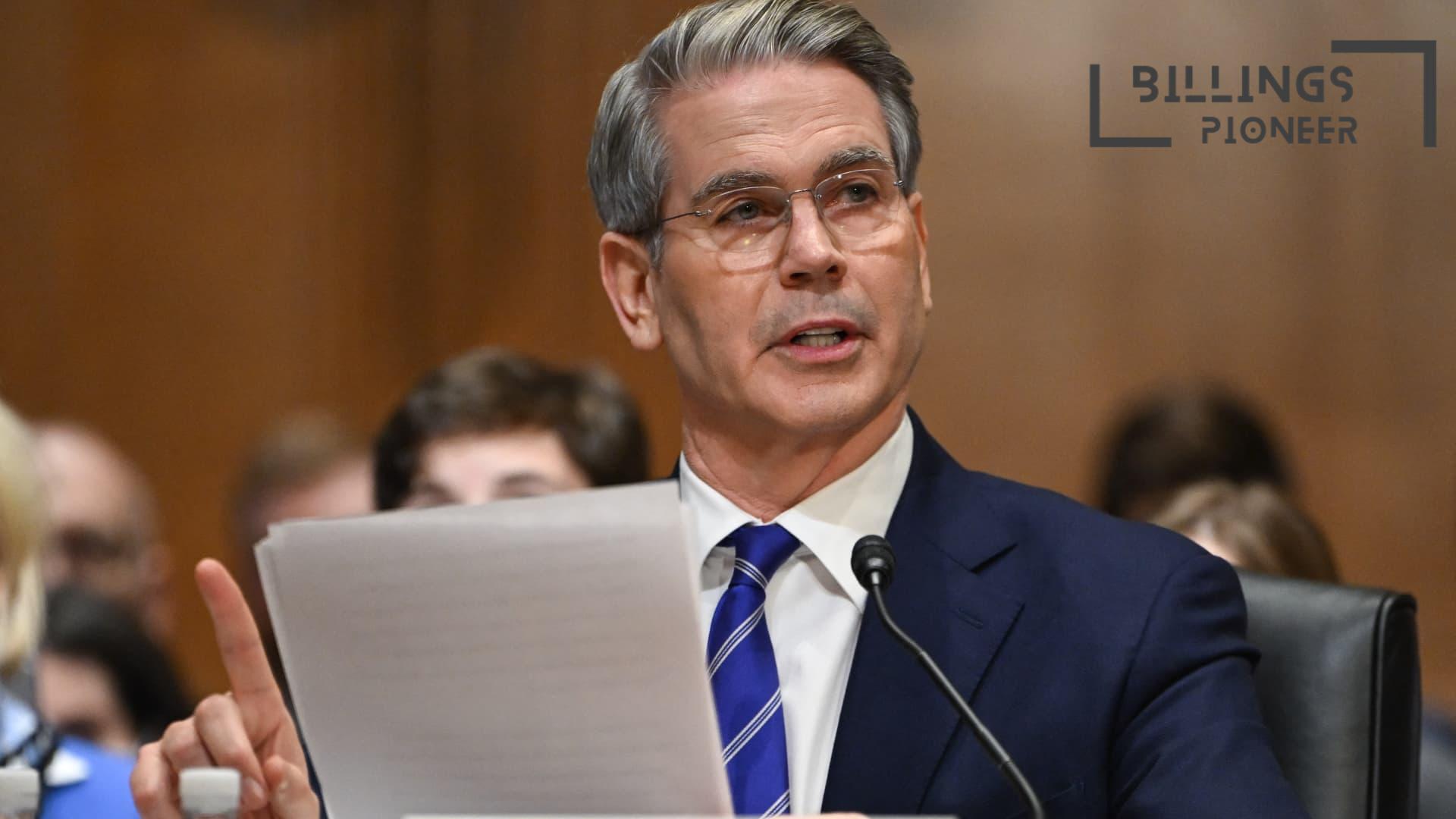In a recent Senate hearing, Scott Bessent, the nominee for U.S. Treasury Secretary, highlighted alarming spending issues facing the nation while advocating for tougher sanctions on Russia amidst its ongoing conflict with Ukraine. Bessent’s testimony not only emphasized the escalating national debt but also underscored the need for Congress to take immediate action to curb economic challenges.
Rising Debt and Spending Concerns
Bessent pointed out a troubling trend in U.S. finances during his testimony. He stated, “We do not have a revenue problem; we have a spending problem.” He referred to the national debt skyrocketing past an astonishing $36 trillion and emphasized that the fiscal year 2025 deficit had surged to $710.9 billion within just three months. This figure marks a steep increase of $200 billion compared to the same period last year, which represents a staggering 39.4% rise. Such deficits are unprecedented, normally only seen during periods of war or economic recession, prompting for urgent action.
Strong Sanctions on Russia
Another essential point Bessent brought up was the necessity of imposing stronger sanctions on Russia. He argued that these sanctions should specifically target Russian oil companies to apply pressure where it hurts economically. This step would not only serve as a response to the ongoing war in Ukraine but also demonstrate a commitment to holding foreign aggressors accountable for their actions.
Economic Warnings Ahead
The Treasury secretary nominee didn’t hold back in his warnings about potential economic calamity if steps aren’t taken. He called upon Congress to extend critical tax cuts initiated in 2017, which he believes are vital for stimulating the economy and preventing further financial crises. Bessent argued that failing to extend these cuts could severely harm the financial fabric of the nation.
Controversies and Criticisms
Bessent’s testimony was not void of controversy. During the hearing, several Senate Democrats brought his tax history into question. They alleged that he owed nearly $1 million in self-employment taxes and accused him of attempting to evade Medicare taxes. Senator Elizabeth Warren chimed in, highlighting her concerns about the wealthy benefiting disproportionately from tax cuts, which have historically favored billionaires over everyday Americans.
What’s Next?
As the Senate deliberates over Bessent’s nomination, there remains a cloud of uncertainty hanging over his confirmation. Many lawmakers are certainly grappling with concerns about his proposed policies and the implications they might have for the average American worker, especially regarding minimum wage discussions, which he openly opposes.
A Call for Togetherness
Bessent’s potential confirmation reflects broader debates within American politics on issues such as tax policies, national spending, and foreign sanctions. His approach signifies an acknowledgment of the complexities involved in balancing economic responsibilities while ensuring the nation’s safety in the global landscape. Whether Congress will heed his warnings and offers remains to be seen as the nation looks for constructive solutions to its financial hurdles.
| Key Financial Data | Value |
|---|---|
| National Debt | $36 Trillion |
| FY 2025 Deficit (First 3 months) | $710.9 Billion |
| Year-over-Year Increase in Deficit | $200 Billion |











